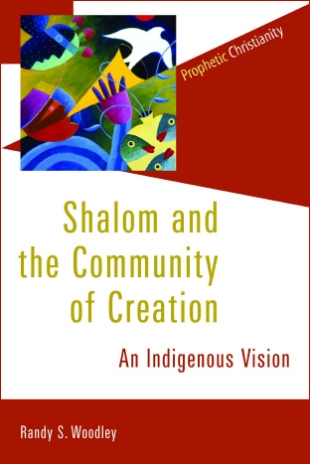"Place is concrete — time is abstract. Within the American myth of pseudo-place, most American identity is formed. Because of the inherent dualism in the American myth, the land can have been stolen through egregious means and the national myth can call the nation free — or even, in some cases, Christian! (Many Native Americans say they call this the land of the free because they never paid for it.) The dualistic American myth of pseudo-place is inextricably woven into the fabric of history and passed down from generation to generation. Piling injustice and lies one upon the other ensures that there will be no chance in the land for God's intended way for us all to live in shalom. It is as if they believe they can actually remake themselves in whatever place and time in which they find themselves. By contrast, land-based, place-oriented peoples are bound more to a place as a basis for their identity. New ground-rules for bringing such divergent views together are currently underdeveloped.
"Place is primarily a relational concept. When the Creator made our world, he was creating the place for relationship between God and all of creation. From that relational place on the earth comes a model of contextualization. God always gives the good news of the welcoming desire for relationship in a particular place (meaning both a physical place and all its cultural accompaniments). We can more easily share God's story as we contextualize the good news to a regional, local, and cultural place. It is common for indigenous peoples to understand the primary emphasis of God's love in terms of place, and as a result, according to relationship in a particular place. The context of relationality, as it relates to place, already exists in indigenous people's own stories.
"What has not been presented clearly to Native Americans is the following Christian storyline: Jesus, as the Creator-Son, brought the good news of the relational aspects of the Trinitarian God to earth by creating a place. Eden was where human beings were placed in order to enjoy the fullest possible sense of place on earth. God's original intention was to allow humans to relate in the parameters of a shalom garden. One could say that the garden culture was the original human culture from which one could come to know God, a God who relates in and through community. This divine community is a model for all human societies, including Native Americans. It is this story to which Native Americans can relate, because it is the same story we already know in our own context and in our own place. Each Native American place of covenant is our 'Eden.'
"Western peoples need to develop a more honest history and a shalom-oriented theology, in practical partnership with the indigenous peoples of the world, to gain a better understanding of place. I suggest that the way forward is both structural and relational, requiring honest historical and theological rethinking and a coming to grips with the following concerns: colonialism and neocolonialism; the way current forms of capitalism resist shalom; the way racism affects our thinking and relationships; the practical implications for living on stolen land; how violence is thought to be needed in order to maintain the present system; what true reconciliation looks like. We need to find ways to share power, and we should seek to understand what justice issues are still unresolved among indigenous and other disempowered peoples."
